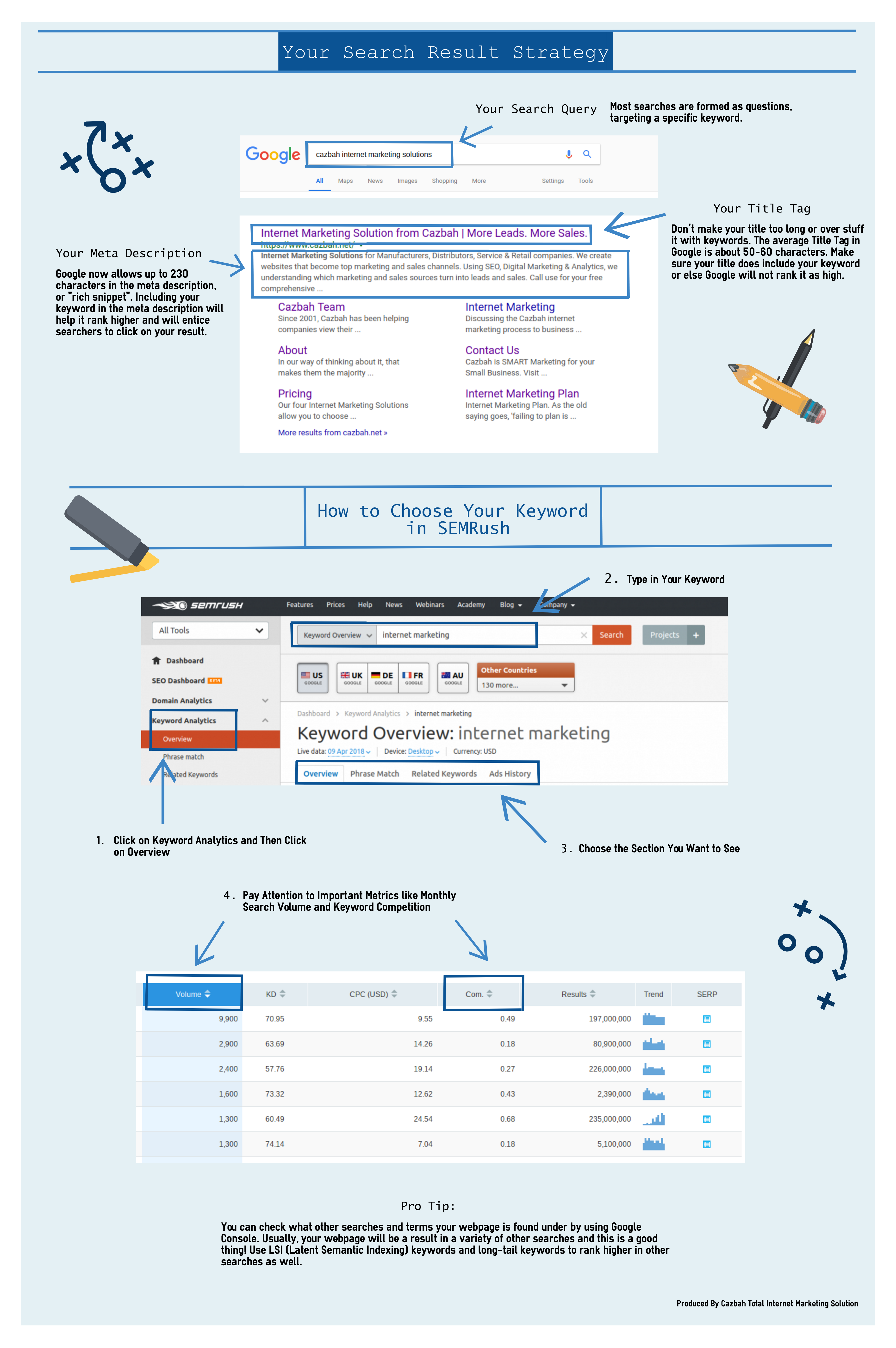Before we can talk about advanced SEO strategies, we first need to understand the anatomy of a search result and where to do keyword research. Search result optimization is how you can ensure your pages rank well in SERPs and that they will actually be found be searchers.
Your Search Result
There are 3 main parts:
1. The Search Query or Term
2. Your Title Tag
3. The Meta Description or “Rich Snippet”
These three parts are the first interaction a searcher has with your brand and your webpage, so they need to be catchy, intriguing, and optimized. You need to optimize your title tag and meta description, not just your body content, with your chosen keyword. Including your keyword in the page URL is another great place to take advantage of SEO marketing space.
Think about it, if you search for something and a result pops up that doesn’t have your search term in it, will you click on it to read more? Probably not.
If a searcher clicks on your result, they want to know they’ll get the information they’re looking for. Google also does a nice job of bolding the searcher’s keyword when it appears in a search result, to help them find the best result. The preview of your result on a SERP may be the only interaction you get with a potential customer, so you need to take full advantage of the opportunities you’re provided to make sure your result gets click on.
Picking a Keyword
I’m gonna state the obvious here, keywords are important and you need to do some research before you settle on one (or a few) to optimize a page for.
There are a variety of tools you can use to perform keyword research:
1. SEMRush
2. Moz Keyword Planner
3. Google Adwords Planner
4. Hubspot Content Strategy
I personally use SEMRush because of it’s comprehensive content research and analysis capabilities. But, regardless of the platform you choose to use, make sure you take the time to actually compare and contrast variations of a keyword. Knowing the popularity or number of searches for that keyword will help you make the best decision on which keyword to use and which keyterm will help your page rank best.
Creating an Optimized Search Result
The following infographic goes into more depth about the topics I’ve stated above.
In Conclusion
If you want your webpages to rank higher, you need to do search result optimization. If not, you’re missing out on basic SEO strategies that could potentially gain your pages more popularity and get you access to qualified leads.
What’s your favorite place to do keyword research? Is there a platform I missed? Let me know in the comments!

